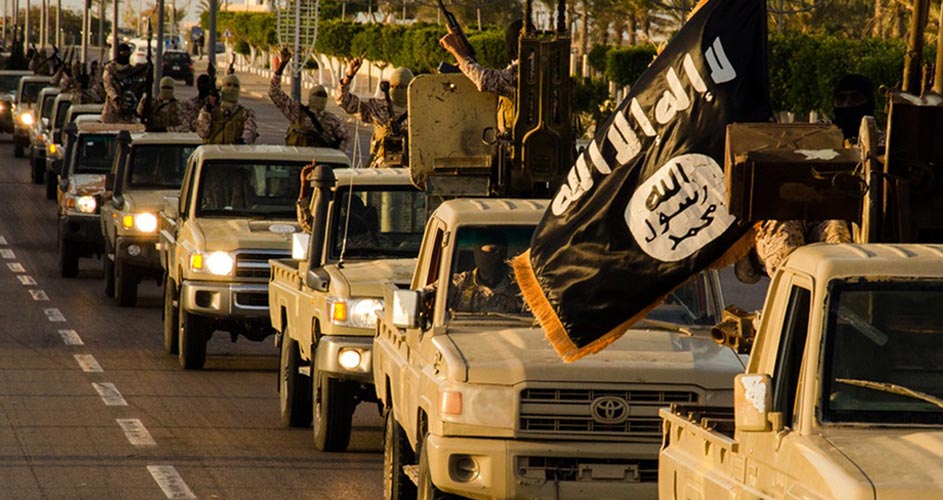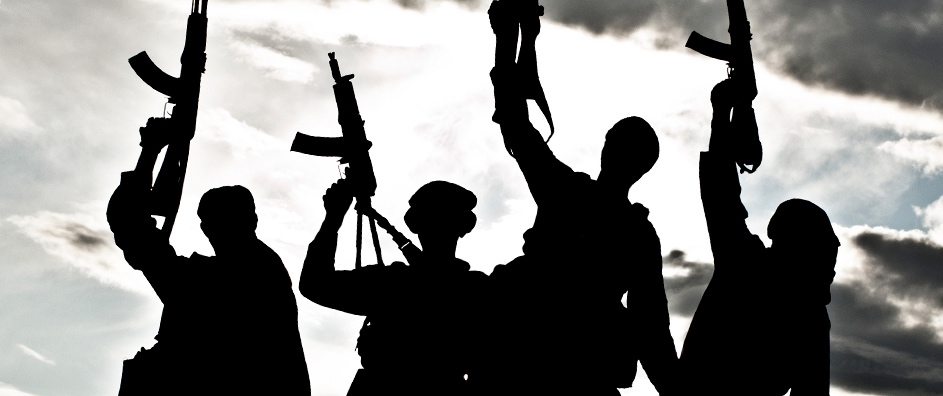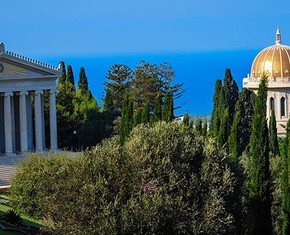The views expressed in our content reflect individual perspectives and do not represent the authoritative views of the Baha'i Faith.
The horrific events in Paris have horrified and outraged government leaders and peoples around the world.
How can we understand the wanton killing of 130 innocent persons in the French capital? What motivates militant Islamists such as ISIS to commit such seemingly random acts of violence as beheading captives, causing death and destruction to fellow Muslims in the Middle East, bringing down a Russian airliner over the Sinai Peninsula or randomly slaughtering people in foreign countries? Claiming for themselves the goal of establishing an Islamic Caliphate across the Middle East, the so-called ISIS extremists in their jihadist campaigns of violence appear intent on destabilizing nation states opposing their ideology.
The Christian world has long rejected Muhammed as a Prophet of God. In part, their rejection stems from such sayings of Christ as “No man cometh to the Father but by me” – (John 14:5) or to “beware of false prophets.” – (Mathew 7:15)
Muhammad was a descendent of Ishmael, through whose father God promised to found a great nation. (Genesis 12:2; 17:20) The book of Genesis tells us that Ishmael, the son of Abraham and the brother of Isaac, dwelt in the land of Paran in Arabia—where Muhammad became a prophet and from where he “shined forth” (Deuteronomy 33:2).
Uniting the warring and barbaric tribes of Arabia, Muhammad’s founding of Islam in the 7th century established that great nation. Within one man’s lifetime, the new Islamic nation would span a territory greater than the Roman Empire, encompassing Spain, North Africa and Central Asia. Standing for the free exchange of ideas and commerce, and commanded by the prophet to seek knowledge from cradle to grave, the Caliphs of Islam promoted learning by seeking without prejudice the outstanding minds of their era. Islam founded schools and universities; created great works and libraries; established cities with paved and lighted streets; set up well-organized hospitals and well-equipped pharmacies; fashioned a land of peace in which justice and tolerance reigned; invented an exquisite architectural form; led the world in mathematics, physics, geography and astronomy; created the Arabic numbering system; evolved and rendered universal in its realm the rich Arabic language; measured the circumference of the earth; determined that the planet is round; and proclaimed monotheism. Islam’s code of laws conferred a flexible constitution, recognized human rights and duties, limited taxation and usury, and consecrated principles of self-government.
Renowned for their hospitality, the Arabs created conditions within their realm that allowed merchants to travel securely between Spain and Persia. Such was the greatness of the Islamic nation in its formative centuries as to demonstrate to the world the power latent in religion to raise up a highly advanced civilization.
Toward the Christians, Muhammed showed kindness, tolerance and affection. He protected them and insisted that Muslims accept Jesus Christ and the Gospel. Securing for them rights and privileges, he defended their churches and priests, and guarded them from injurious acts. A Muslim was not to treat a Christian with contempt on account of his beliefs, nor force a Christian to recant his Faith. In the Qur’an it is written that there should be no compulsion in religion. So fairly did Muhammed treat the Christians that in the Islamic nation they were appointed to high posts and prospered. Many were disposed to accept Muhammad’s Faith.
Good relations continued between the Muslims and Christians until the Crusades. Beginning in 1094, when Pope Urban II called upon Christian nations to drive the Arabs out of the Holy Land, two hundred years of wars ensued during which Islam, horrified by Christian barbarity, retaliated and defeated the Crusaders. Meanwhile Europe, which in medieval times had been languishing – its peoples living in mud huts and in miserable and unsanitary cities plagued by disease, ignorance, war and treachery – emerged out of the Crusades into a rebirth of learning, or Renaissance, thanks to the civilizing influence of the Arabs.
In today’s secular world, Muslims can be conflicted by democratic ideals. These ideals include such unalienable rights as life, liberty, the pursuit of happiness, freedom of speech and of religion. Many Muslims, by contrast, follow a system that regulates behavior according to Sharia law. Islamic law, which may be found in many volumes documenting the rulings of jurists over many centuries, regulates public speech, dress, marriage, education, property, and civil law. It recognizes theocracy as the legitimate form of government. Muslims see the law as enabling them to draw closer to God through fulfilling moral and ethical objectives.

Islamist militants interpret Sharia law as condoning violence to spread their interpretation of Islam, to terrorize enemy populations, to destabilize political institutions, to suppress free speech or criticism, to oppress women and non-Muslims, to limit education, to kill apostates and unbelievers, to punish thefts by amputation, and to seek martyrdom in the path of Allah. Waging jihad or holy war against unbelievers, they terrorize populations by resorting to beheadings, mafia-style shootings of civilians, executions reminiscent of Nazi exterminations of Jews, and indiscriminate suicide bombings in public places.
Jihad is taken generally to mean a literal war or struggle against unbelievers. But in a saying attributed to Muhammed from a 1,200 year old compilation by al-Bukhari considered the most authentic work after the Qur’an, jihad means doing battle with one’s inner self: “The most excellent Jihad is that for the conquest of self.”
As the world watches in trepidation, the nation-building program of ISIS surely contrasts sharply with the nation-building program of the prophet Muhammed, which brings up a fundamental question: what is the purpose of religion?
According to the Baha’i teachings, religion: “…should unite all hearts and cause wars and disputes to vanish from the face of the earth, give birth to spirituality, and bring life and light to each heart.” – Abdu’l-Baha, Paris Talks, p. 130.
Abdu’l-Baha concludes with this remarkable comment:
If religion becomes a cause of dislike, hatred and division, it were better to be without it, and to withdraw from such a religion would be a truly religious act. For it is clear that the purpose of a remedy is to cure; but if the remedy should only aggravate the complaint it had better be left alone. Any religion which is not a cause of love and unity is no religion. All the holy prophets were as doctors to the soul; they gave prescriptions for the healing of mankind; thus any remedy that causes disease does not come from the great and supreme Physician. – Ibid.
You May Also Like
Comments

















Muslim Expatriates: Choosing a Path Forward